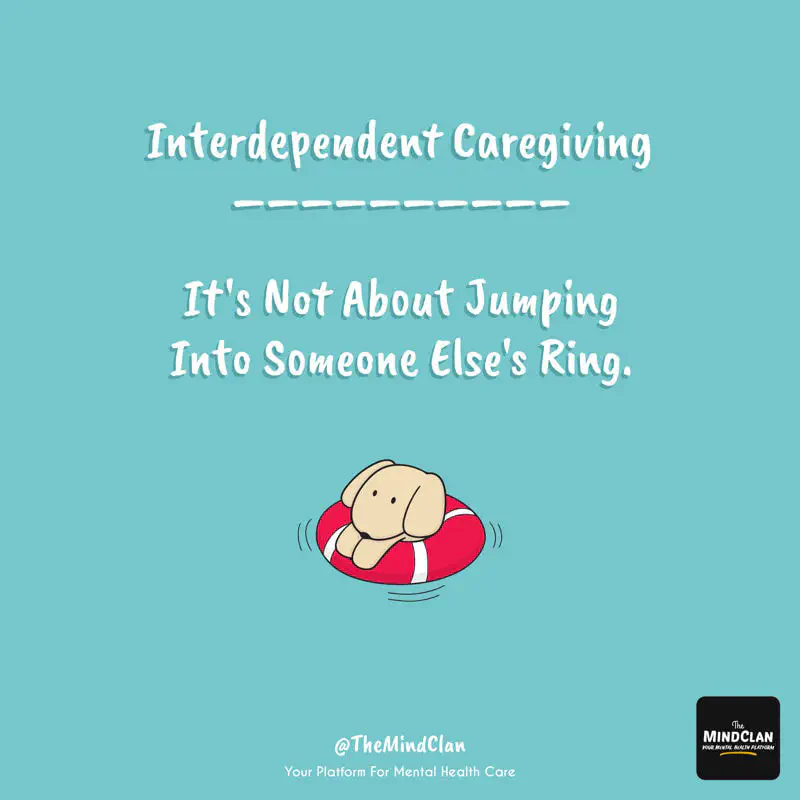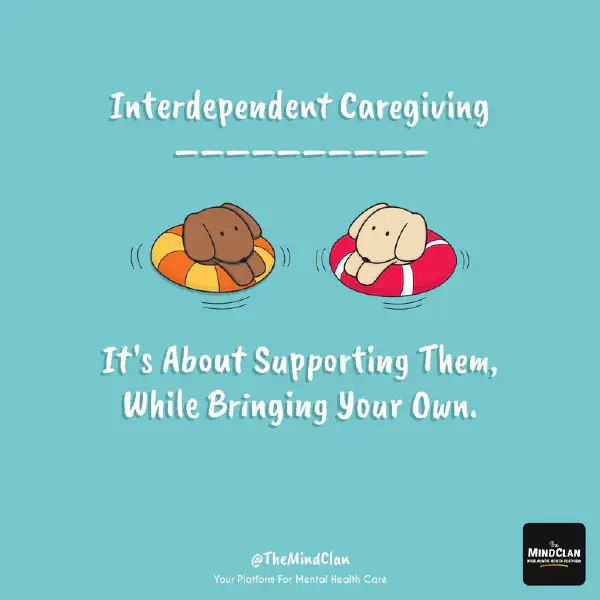Caregiving is often viewed as a one-way relationship of “offering assistance or help to a person who needs it due to disability and/or a mental health condition.“
👀 This definition may perpetuate the idea of rescuing or saving a person “in need” and takes away their agency.
👀 It implies that only one person needs support in this relationship.
👀 The “caregiver” is assumed to be able-bodied and hence, independent and not requiring any help or support for themselves.
Viewing caregiving in this way can be problematic and unhelpful. Let’s shift this!
What if we were to experience caregiving as a two-way relationship of interdependence on each other? 🌻
Interdependence in caregiving:
🌟 Honours the fact that we both need help and support. We both may need different kinds of floats.🌟 Recognizes how we need each other in many little and big ways. It is not about me “dependent on you.” It is not you deciding to “help” me. It is both “you and I”, it is “we” in this together.🌟 Does not allow ableism to decide our worth as people in the relationship.🌟 Locates the problem in the unjust waters, not inside the people navigating those waters.🌟 Allows for love and care in the relationship to exist from a position of justice.🌟 Celebrates solidarity and community over the binary of independence-dependence.
Do you resonate with interdependent caregiving?Is there something about caregiving that you see differently?Let us know how this floats with you 🐶
TheMindClan.com,Your Platform For Mental Health Care




